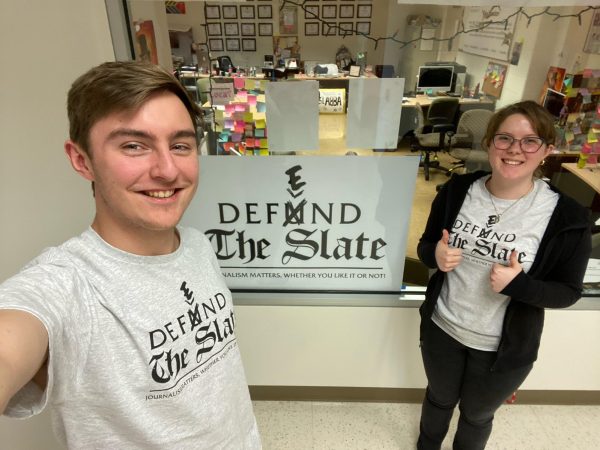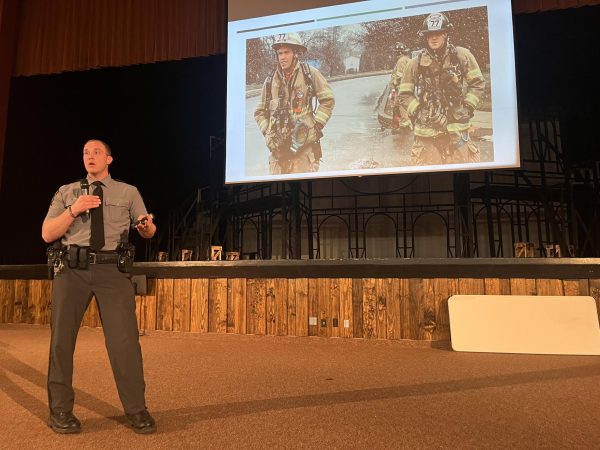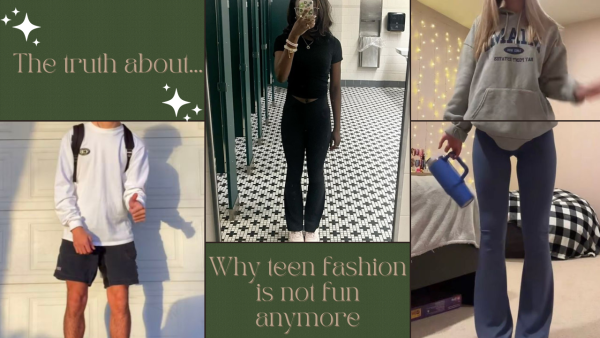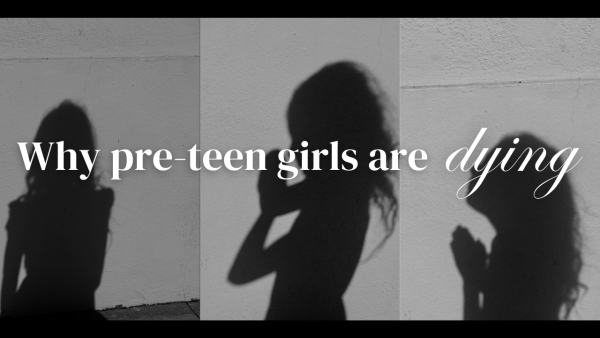Editorial: New York Fashion Week distorts teenagers’ self-image

IMAGE DISTRIBUTED FOR HARLEM GLOBETROTTERS – Models walk the runway wearing Harlem Globetrotters-inspired fashions designed by Angela Simmons, at the annual KIA STYLE360 showcase during New York Fashion Week, Tuesday, Sept. 15, 2015, New York, N.Y. (Photo by Stuart Ramson/Invision for Harlem Globetrotters/AP Images)
September 22, 2015
New York Fashion week is known for sharing authentic designs and exciting new trends in the garment industry. Early September is peak season for the style conscious. As Fashion Week ended on September 17, fashion lovers returned to their normal fashion-practical lives.
Fashion Week gives the fashion conscious the inspiration to shop the lesser expensive knockoff retailers like Forever 21. The goal is to look good, but with its unrealistic image of beauty, Fashion Week ultimately contributes to body shaming.
Every year you see different styles and cultures on the runway but one thing remains consistent. Popular designers continuously use the “ideal” skinny model to display their designs. Designers Victoria Beckham and Diane Von Ferstenberg in particular, used models that people claimed were too skinny.
High school and college students are aspiring to mimic the so-called “ideal” image of these models.
Displaying these extremely thin models is pushing children and also young adults to feelings of insecurity, which then leads to the development of eating disorders, such as Anorexia and Bulimia.
Even though not all battle eating disorders, many teens and young adults are still caught in the trap of self-image. This generation has become one where someone’s self-worth is measured by how many likes they receive on social media or how many fire emojis appear under your bikini beach picture. People are using these factors, controlled by other people, to determine their attractiveness.
The University College of London research contradicts the common perception that discrimination or body shaming might encourage weight loss. However, a September, 2014 study by the UCL of 2944 overweight and obese people conducted over four years in the United Kingdom, reported that those experiencing weight discrimination gained more weight than those who did not .
Popular culture suggests that people look up to these models and designers to hand down trends and to set an example of what a perfect body should look like. How is one supposed to feel confident about themselves, when the clothes they buy are modeled by someone who doesn’t look like them?
It also doesn’t help that adolescents constantly compare themselves to celebrities who have a team of specialists to enhance their appearance. One North Penn student, who wished to not be identified, said that the media has set unrealistic body standards for men and women, “I feel insecure about my body because I feel like I have to fit a certain standard in society that I don’t fit.”
Another North Penn student, who also asked not to be identified, commented on body shaming saying that “There always seems to be a problem with your body shape. If you’re big, then you’re too big and if you’re small, you’re too small. People lately are shaming skinny girls .We shouldn’t be shaming each other because of our body type and what guys like. We need to stop caring about what other people think and start loving ourselves.”
All in all, youth should not feel that they have to fit into a category. Youths should simply be able to love themselves as they are. No model should be a goal for a body because ultimately every body is different. Individuals should embrace what makes each and every one unique.
No “Week,” no matter how well intentioned, should be able to influence one’s acceptance into society. Big, small, curvy, or tall, one should be able to rock them all.




















Janet Carroll • Sep 22, 2015 at 4:15 pm
Great article!! Very insightful..